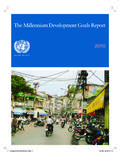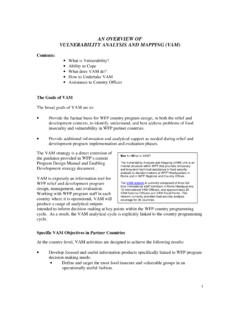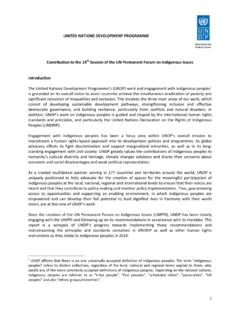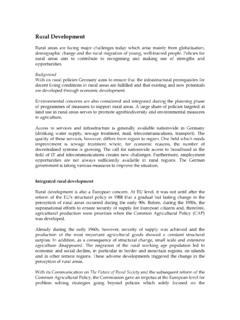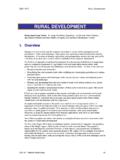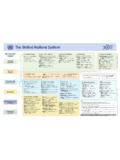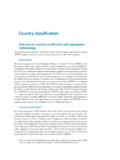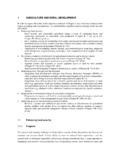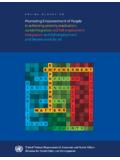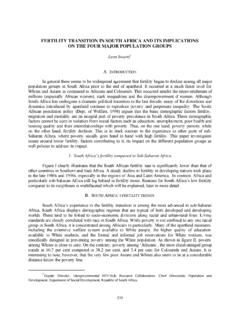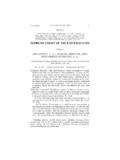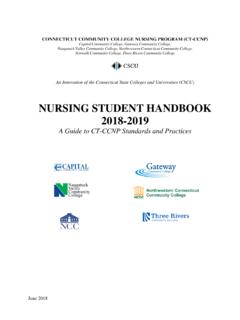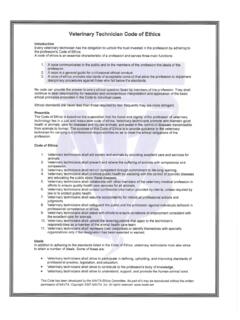Transcription of United Nations The Road to Dignity by 2030
1 Advance unedited 4 December 2014 10:00 1 United Nations The road to Dignity by 2030: Ending Poverty, Transforming All Lives and Protecting the Planet Synthesis Report of the Secretary-General On the Post-2015 Agenda New York December 2014 Advance unedited 4 December 2014 10:00 2 Table of Contents 1. A universal call to action to transform our world beyond 2015 2. A Synthesis What we have learned from decades of development experience What we have learned from the post-2015 process Shared ambitions for a shared future 3. Framing the new agenda Setting the stage A transformational approach Six essential elements for delivering on the SDGs Integrating the six essential elements 4. Mobilizing the means to implement our agenda Financing our future Technology, science, and innovation for a sustainable future Investing in sustainable development capacities 5. Delivering our agenda: a shared responsibility Measuring the new dynamics Lighting the way: the role of data in the new agenda Gauging our progress: monitoring, evaluation, and reporting Making the UN fit for a sustainable future 6.
2 Conclusion: together in a universal compact Advance unedited 4 December 2014 10:00 3 We recognize that people are at the centre of sustainable development and, in this regard, we strive for a world that is just, equitable and inclusive, and we commit to work together to promote sustained and inclusive economic growth, social development and environmental protection and thereby to benefit all. Rio+20 Outcome Document, The Future We Want 1. A Universal Call to Action to Transform our World beyond 2015 1. The year 2015 offers a unique opportunity for global leaders and people to end poverty, transform the world to better meet human needs and the necessities of economic transformation, while protecting our environment, ensuring peace and realizing human rights. 2. We are at a historic crossroads, and the directions we take will determine whether we will succeed or fail on our promises.
3 With our globalized economy and sophisticated technology, we can decide to end the age-old ills of extreme poverty and hunger. Or we can continue to degrade our planet and allow intolerable inequalities to sow bitterness and despair. Our ambition is to achieve sustainable development for all. 3. Young people will be the torch bearers of the next sustainable development agenda through 2030. We must ensure that this transition, while protecting the planet, leaves no one behind. We have a shared responsibility to embark on a path to inclusive and shared prosperity in a peaceful and resilient world where human rights and the rule of law are upheld. 4. Transformation is our watchword. At this moment in time, we are called to lead and act with courage. We are called to embrace change. Change in our societies. Change in the management of our economies. Change in our relationship with our one and only planet.
4 5. In doing so, we can more fully respond to the needs of our time and deliver on the timeless promise made at the birth of the United Nations . Advance unedited 4 December 2014 10:00 4 6. Seventy years ago, in adopting the Organization s founding Charter, the Nations of the world made a solemn commitment: to save succeeding generations from the scourge of war, to reaffirm faith in fundamental human rights, in the Dignity and worth of the human person, in the equal rights of men and women and of Nations large and small, to establish conditions under which justice and respect for international law can be maintained, and to promote social progress and better standards of life in larger 7. Building on this core promise, the Declaration on the Right to Development (1986) called for an approach that would guarantee the meaningful participation of all in development, and the fair distribution of its benefits.
5 8. Humankind has achieved impressive progress in the past seven decades. We have reduced violence and established global institutions, a code of agreed universal principles, and a rich tapestry of international law. We have witnessed stunning technological progress, millions upon millions lifted from poverty, millions more empowered, diseases defeated, life expectancies on the rise, colonialism dismantled, new Nations born, apartheid conquered, democratic practices take deeper roots, and vibrant, economies built in all regions. 9. Since the 1992 Earth Summit in Rio de Janeiro, we have identified a new pathway to human wellbeing the path of sustainable development. The Millennium Declaration and the Millennium Development Goals articulated in the year 2000 placed people at the center, generating unprecedented improvements in the lives of many around the world.
6 The global mobilization behind the MDGs showed that multilateral action can make a tangible difference. 10. Yet conditions in today s world are a far cry from the vision of the Charter. Amid great plenty for some, we witness pervasive poverty, gross inequalities, joblessness, disease and deprivation for billions. Displacement is at its highest level since the Second World War. Armed conflict, crime, terrorism, persecution, corruption, impunity and the erosion of the rule of law are daily realities. The impacts of the global economic, food and energy crises are still being felt. The consequences of climate change have only just begun. These failings and shortcomings have done as much to define the modern era as has our progress in science, technology and the mobilization of global social movements. Advance unedited 4 December 2014 10:00 5 11. Our globalized world is marked by extraordinary progress alongside unacceptable and unsustainable levels of want, fear, discrimination, exploitation, injustice and environmental folly at all levels.
7 12. However, we also know that these problems are not accidents of nature or the results of phenomena beyond our control. They result from actions and omissions of people public institutions, the private sector, and others charged with protecting human rights and upholding human Dignity . 13. We have the know-how and the means to address these challenges. But we need urgent leadership and joint action now. 14. These are universal challenges. They demand new heights of multilateral action based on evidence and built on shared values, principles, and priorities for a common destiny. 15. Our global commitments under the Charter should compel us to act. Our sense of empathy and enlightened self-interest should compel us to act. Our responsibilities as stewards of the planet should equally compel us to act. None of today s threats respect boundaries drawn by human beings whether those boundaries are national borders, or boundaries of class, ability, age, gender, geography, ethnicity, or religion.
8 16. In an irreversibly interconnected world, the challenges faced by any become the challenges faced by each of us sometimes gradually but often suddenly. However, facing these vexed challenges is not only a burden; it is far more an opportunity to forge new partnerships and alliances that can work together to advance the human condition. 17. The MDG experience provides compelling evidence that the international community can be mobilized to confront such complex challenges. Governments, civil society and a wide range of international actors coalesced behind the MDGs in a multi-front battle against poverty and disease. They generated innovative approaches, vital new data, new resources, and new tools and technology for this struggle. Transparency was enhanced, multilateral approaches were strengthened, and a results-based approach to public policy was fostered.
9 Sound public policies inspired by the MDGs, enhanced by collective action and international cooperation, lead to remarkable successes. In two decades since 1990, the world has halved extreme poverty, lifting 700 million out of Advance unedited 4 December 2014 10:00 6 extreme poverty. Between 2000 and 2010, an estimated million deaths from malaria were averted, and 22 million lives were saved from fighting tuberculosis. Access to antiretroviral therapy (ART) for HIV-infected people has saved million lives since 1995. At the same time, gender parity in primary school enrolment, access to child and maternal health care, and in women s political participation improved 18. We must invest in the unfinished work of the MDGs, and use them as a springboard into the future we want a future free from poverty and built on human rights, equality and sustainability.
10 This is our duty and it must be the legacy we strive to leave for our children. 19. In our quest to shape a global sustainable development agenda for the years beyond 2015, the international community has embarked upon an unprecedented process. Never before has so broad and inclusive a consultation been undertaken on so many matters of global concern. In two short years since the Rio + 20 Conference laid the cornerstone for the Post-2015 process, all Member States, the entire UN system, experts, and a cross-section of civil society, business and most importantly-- millions of people from all corners of the globe, have travelled this crucially important journey. This, in itself, is reason for great hope. The creativity and shared sense of purpose that has emerged from across the human family is proof that we can come together to innovate and collaborate in search of solutions and the common good.
